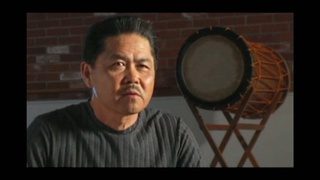Interviews
Initial struggles with the language barrier (Japanese)
(Japanese) [Learning the] language was the first thing. It was all about the words. For the laundry job, we did all of the cleaning work, but my father had hired people for customer service. My father did the washing, and I did all of the ironing in the back room, since I didn’t understand any Spanish. At my father’s uncle’s store, I was in charge of the deliveries, so I ended up learning phrases like “anque sea un poco” (even just a little), or “anque sea mitad” (even at least half), in order to receive payment for the deliveries.
Date: November 28, 2006
Location: Buenos Aires, Argentina
Interviewer: Takeshi Nishimura, Ricardo Hokama
Contributed by: Centro Nikkei Argentino
Explore More Videos


Little interaction with parents
(1926 - 2012) Scholar and professor of anthropology. Leader in the establishment of ethnic studies as an academic discipline

Going back to Hawaii
An expert researcher and scholar on Japanese immigrant clothing.

Picture brides and karifufu
An expert researcher and scholar on Japanese immigrant clothing.

Lack of language skills
(b.1964) California-born business woman in Japan. A successor of her late grandmother, who started a beauty business in Japan.

Acculturation
(b.1964) California-born business woman in Japan. A successor of her late grandmother, who started a beauty business in Japan.

Japanese are more accustomed to foreigners
(b.1964) California-born business woman in Japan. A successor of her late grandmother, who started a beauty business in Japan.

Working at the magazine
(b.1948) Nikkei from Southern California living in Japan.

Kibei schoolchildren in Hiroshima, Japan
(b.1913) Kibei from California who served in the MIS with Merrill’s Marauders during WWII.

Difficulties understanding different Japanese dialects
(b.1913) Kibei from California who served in the MIS with Merrill’s Marauders during WWII.

The reason he came to the United States (Japanese)
(1949 - 2019) Taiko player. Founded five taiko groups in Southern California

Teaching at the military language school during World War II
(b. 1924) Political scientist, educator, and administrator from Hawai`i

Learning English upon discovering that family could not return to Peru
(1930-2018) Nisei born in Peru. Taken to the United States during WWII.

Playing baseball along with American Nisei and Kibei
(1930-2018) Nisei born in Peru. Taken to the United States during WWII.

Grandfather's arrival in the U.S., experiencing discrimination
(b. 1939) Japanese American painter, printmaker & professor
